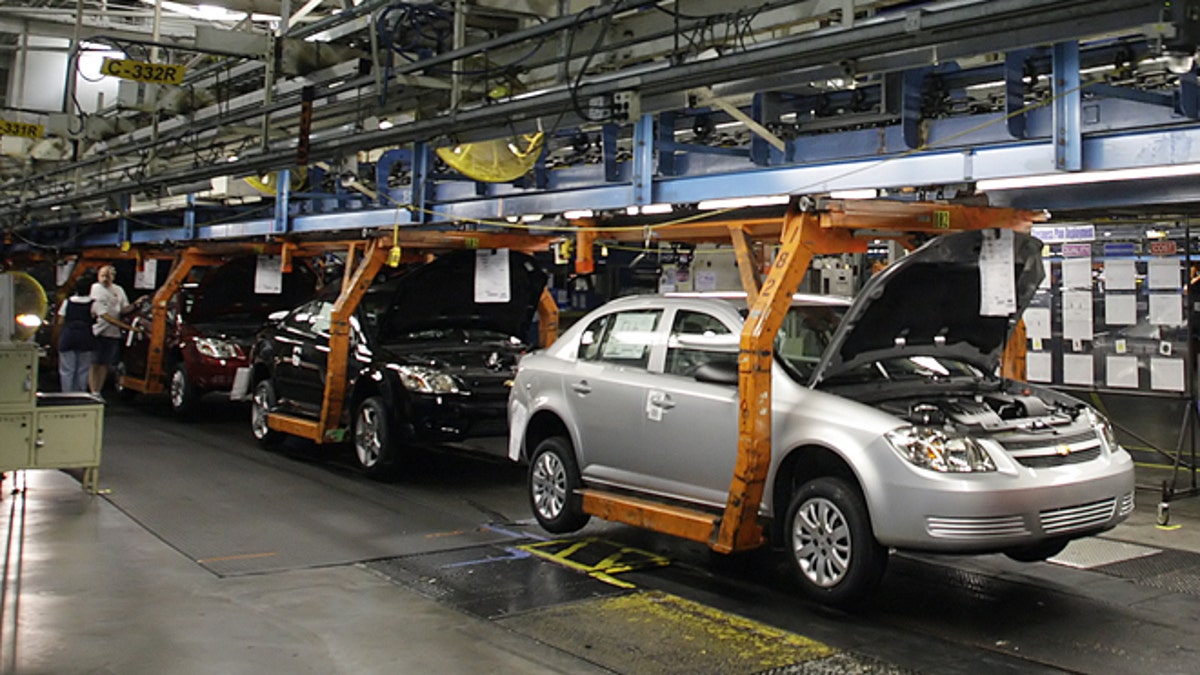
FILE - In this Thursday, Aug. 21, 2008, file photo, the Chevy Cobalt moves on the assembly line at the Lordstown Assembly Plant Thursday Aug. 21, 2008. in Lordstown, Ohio. The U.S. governments auto safety watchdog likely is looking into whether General Motors was slow to report problems that led to a massive small-car recall and 13 deaths. Photo/Ron Schwane, File)
What did General Motors know, and when? That’s what federal safety investigators are trying to find out.
The National Transportation and Safety Administration is demanding that the automaker hand over documents related to its recent recall of 1.6 million vehicles due to faulty ignition switches that have been linked to at least 13 fatal accidents.
The automaker admits that it was aware of the potential issue a decade ago, but continued producing the vehicles without addressing it. It’s not yet clear why that decision was made.
On Tuesday, GM CEO Mary Barra told employees that she was launching an internal investigation into the issue and that “an unvarnished report on what happened” would be forthcoming.
A GM spokesperson says the company is cooperating with the federal investigation and “welcomes the chance to help NHTSA fully understand the facts.
GM has until April 3 to produce the documents. In similar cases, such as the Toyota unintended acceleration recalls, NHTSA has demanded large volumes of information.
NHTSA wants the documents to determine if GM delayed its response or withheld evidence. If either case, NHTSA could fine GM up to $35 million. Automakers are required to inform NHTSA of safety defects within five days of discovering them.
Such a fine would be a record for NHTSA, but essentially is pocket change for GM, which made $3.8 billion last year.
Still, the facts surrounding the recall are embarrassing for GM and could scare away consumers. Since undergoing a painful bankruptcy in 2009, GM has removed layers of bureaucracy, improved the quality of its vehicles and is quicker to issue recalls when problems occur. However, the admission that its procedures were lacking 10 years ago shows how the old culture can still haunt the automaker.
In an effort to reassure employees and customers, GM's new CEO Mary Barra on Tuesday promised an "unvarnished" internal investigation to figure out what happened and prevent it from recurring.
"We want our customers to know that today's GM is committed to fixing this problem in a manner that earns their trust," GM's Adler said.
The maximum fine NHTSA can charge was more than doubled last year under legislation approved by Congress after the Toyota recalls. But critics say it still isn't enough to deter bad behavior by automakers.
On Feb. 13, GM announced the recall of more than 780,000 Chevrolet Cobalts and Pontiac G5s (model years 2005-2007). Two weeks later it added 842,000 Saturn Ion compacts (2003-2007), and Chevrolet HHR SUVs, Pontiac Solstice and Saturn Sky sports cars (2006-2007).
GM says a heavy key ring or jarring from rough roads can cause the ignition switch in those vehicles to move out of the run position and shut off the engine and electrical power. That can knock out power-assisted brakes and steering and disable the front air bags. In the fatalities, the air bags did not inflate, but the engines did not shut off in all cases, GM said.
It was unclear whether the ignition switches caused the crashes, or whether people died because the air bags didn't inflate.
The Associated Press contributed to this report.